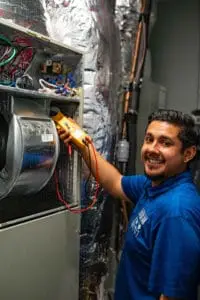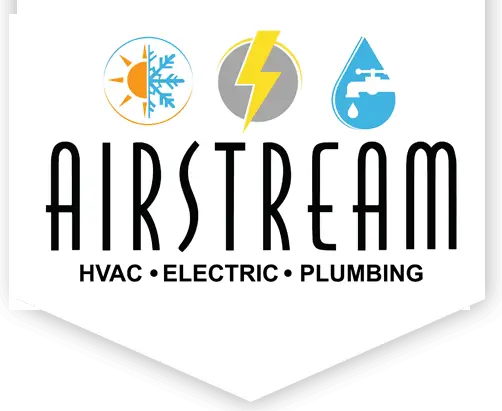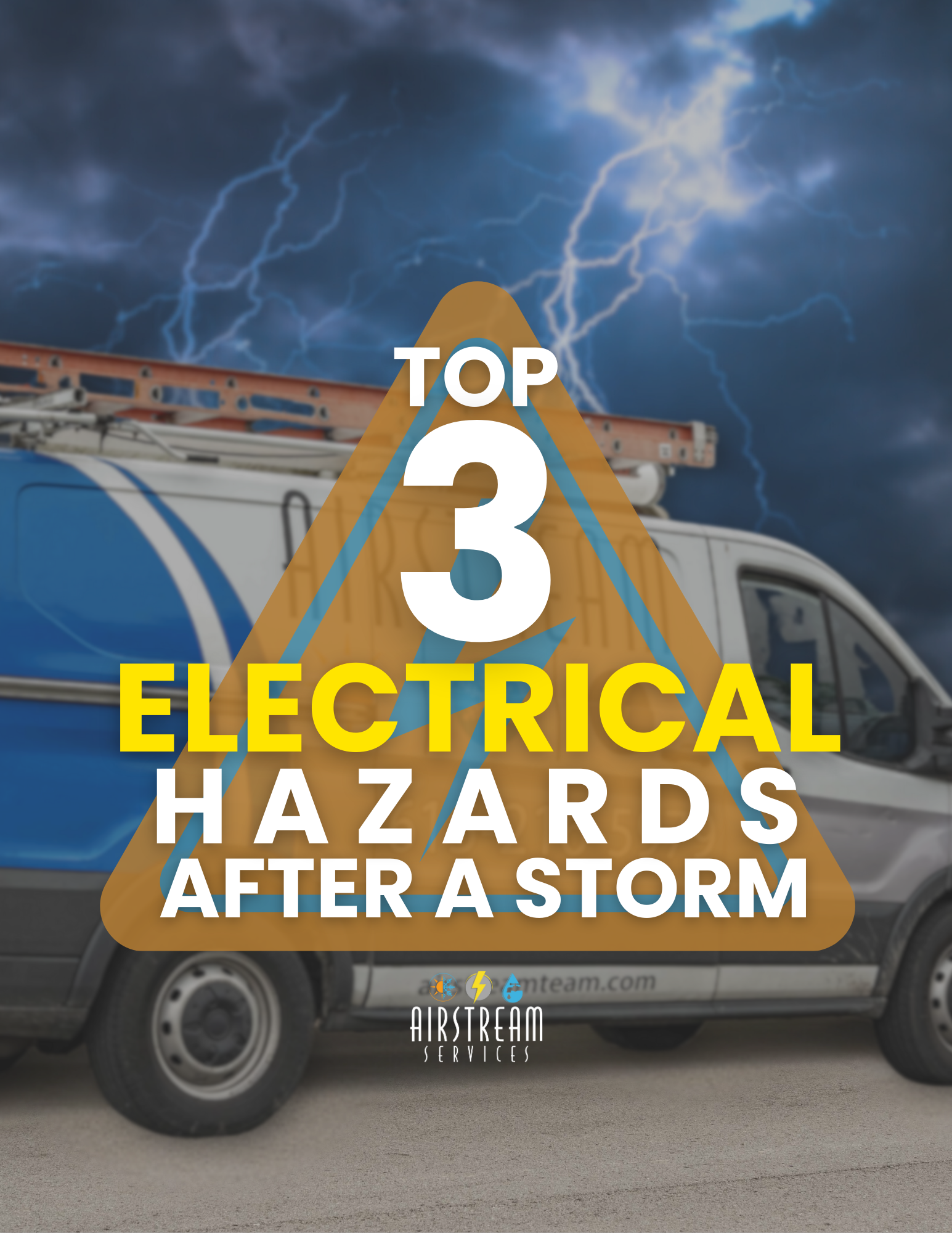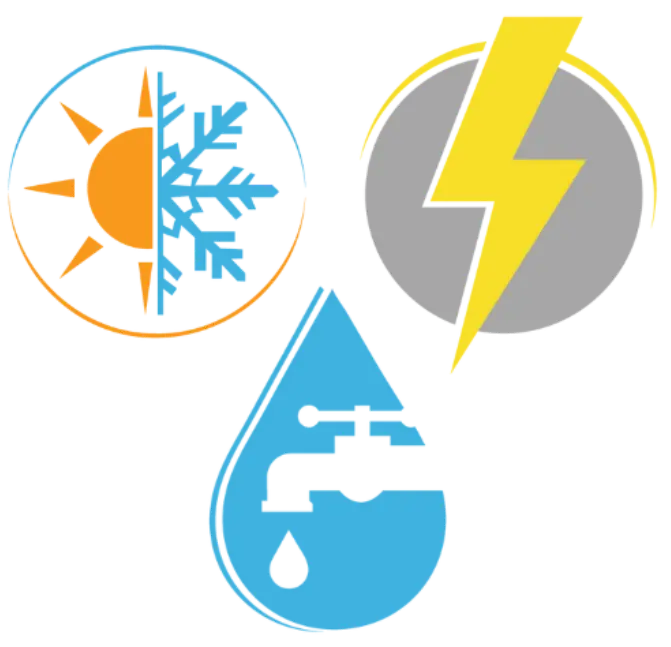
Common Reasons Your AC Is Blowing Warm Air
When your AC isn’t providing the cool relief you expect, it can be frustrating and uncomfortable. I know how it feels when the heat seems to invade your home even with the air conditioner on. In this article, I’ll share simple troubleshooting steps anyone can try at home, discuss when calling a professional HVAC technician is necessary, and offer practical ways to prevent future cooling issues. By understanding the common reasons why your AC might be pushing out warm air, you can better troubleshoot and address the issue effectively. By following these steps, you can better understand what might be happening with your system and decide if professional help is needed. Let’s dive in and uncover the reasons behind your AC blowing warm air.
Simple Troubleshooting Steps You Can Try at Home
The first step to solving your AC’s warm air issue is to check for simple problems that you can fix on your own. Start by ensuring that the thermostat is set to the cooling mode and that the temperature is set lower than the current room temperature. Another common issue is the air filter; a clogged or dirty filter can restrict airflow, causing the system to overheat and blow warm air. Additionally, inspect the condensate drain for any blockages that could disrupt proper cooling. Making sure that the outdoor unit is free from debris, such as leaves or dirt, is also crucial because obstructed airflow around the condenser can result in inefficient cooling. Finally, check that all system controls are functioning – a malfunctioning thermostat or a tripped circuit breaker might be at fault.
When You Should Call a Professional HVAC Technician
If you’ve gone through the basic troubleshooting steps and your AC still blows warm air, it might be time to contact a professional HVAC technician. I always recommend calling expert help when you suspect refrigerant issues, unusual noises, or persistent performance problems that DIY fixes can’t resolve. A professional technician can accurately diagnose refrigerant leaks or compressor issues that require specialized tools and expertise. Moreover, if your system is older than 10 years or has a history of breakdowns, professional maintenance can help prevent further damage and improve efficiency. Don’t hesitate to get professional assistance for any electrical or mechanical issues that pose safety risks. If your AC is blowing hot air or exhibiting other issues, it’s crucial to recognize the signs that you need to hire professional HVAC repair to prevent further damage.
How to Prevent Future Cooling Issues
Preventing future cooling issues starts with regular maintenance and taking simple precautions. I suggest scheduling seasonal tune-ups with an HVAC service professional to ensure that your system is functioning optimally. Implementing tips to prevent your air conditioner from working too hard can enhance efficiency and reduce energy costs. Regularly replacing air filters every 1–3 months, depending on usage, is a critical step that helps maintain proper airflow and efficiency. In addition, keeping the outdoor unit clean and accessible cannot be overstated; make sure to trim any overgrown vegetation and remove debris periodically. Another effective measure is to check the thermostat settings at the beginning of each cooling season and consider upgrading to a programmable thermostat that adjusts the temperature based on your routine. Regular AC maintenance is essential for keeping your cooling system running efficiently, preventing costly breakdowns and extending the lifespan of your unit. Lastly, maintaining proper insulation in your home and sealing any leaks around doors and windows can significantly reduce the overall cooling load on your system.
| Issue | Function | Benefit | Note |
| Thermostat settings | Ensures cooling mode is active | Quick fix for misconfiguration | Check regularly |
| Air filter | Promotes proper airflow | Improves system efficiency; reduces strain | Replace monthly or per usage |
| Outdoor condenser unit | Unhindered heat exchange | Prevents overheating; improves cooling performance | Keep unit clear of debris |
| Condensate drain | Proper moisture removal | Prevents water backup and maintains cooling efficiency | Clear any blockages promptly |
FAQs About AC Cooling Problems
Q: Why is my AC blowing warm air?
A: Common reasons include thermostat misconfiguration, dirty air filters, and blocked outdoor units. Maintenance can often resolve these issues.
Q: How do I know if my refrigerant is low?
A: Signs include longer cooling cycles, ice buildup on coils, and insufficient cold air output. If these occur, consult a technician immediately.
Q: Can a dirty air filter really affect AC performance?
A: Yes, a dirty air filter restricts airflow, forcing the system to overheat and work harder, which may cause it to blow warm air.
Q: How often should I schedule an HVAC maintenance check?
A: Professionals suggest at least once a year or before the peak cooling season to catch any potential issues early.
Q: When should I consider replacing my AC unit?
A: If your AC is older than 10–15 years, requires frequent repairs, or consistently fails to cool despite proper maintenance, a replacement may be necessary.
Final Thoughts
My experience has taught me that the key to resolving AC issues lies in early diagnosis and regular maintenance. From checking thermostat settings and air filters to scheduling professional inspections, each step helps maintain your system’s efficiency. Following these guidelines not only resolves current problems but also prevents future breakdowns, keeping your home comfortable throughout the year. Remember, if in doubt or faced with complex issues, contacting a professional HVAC technician is always the safest and most effective solution.



